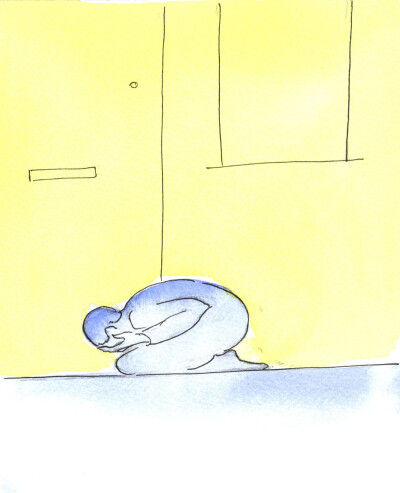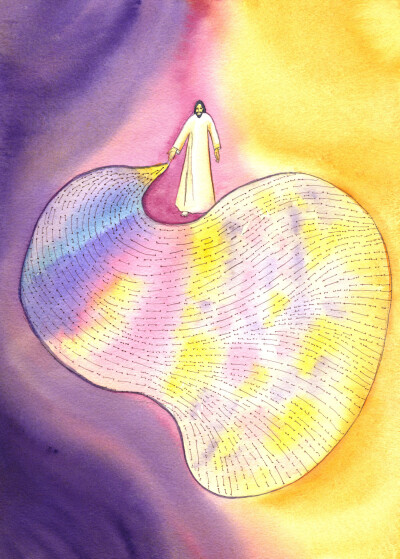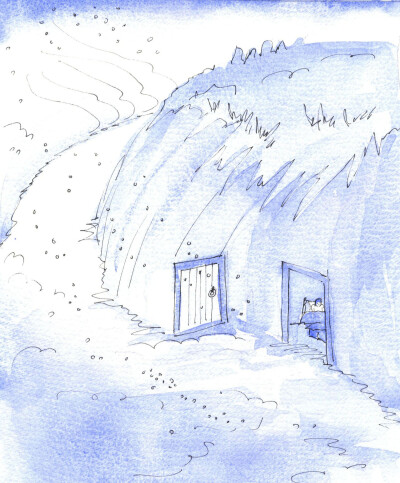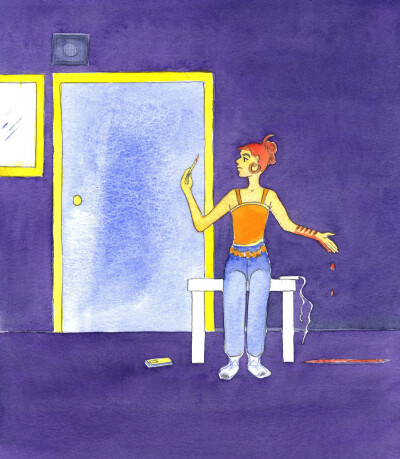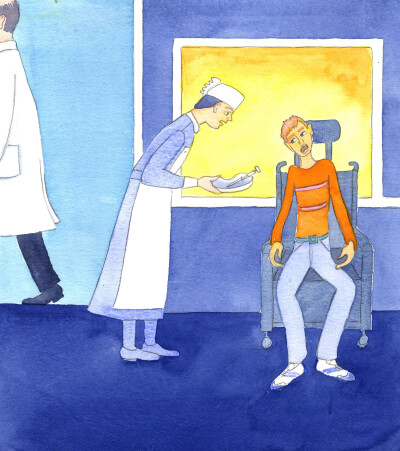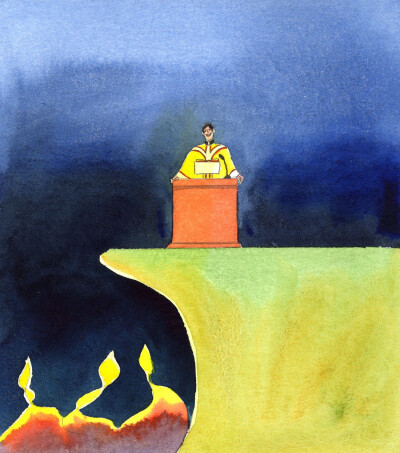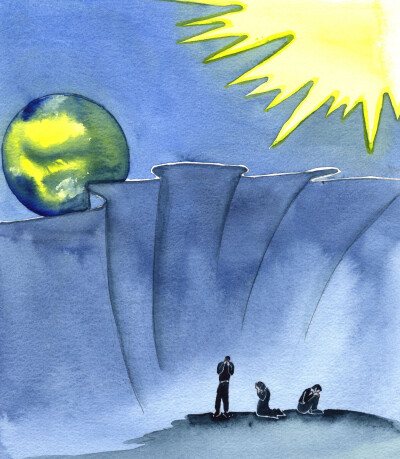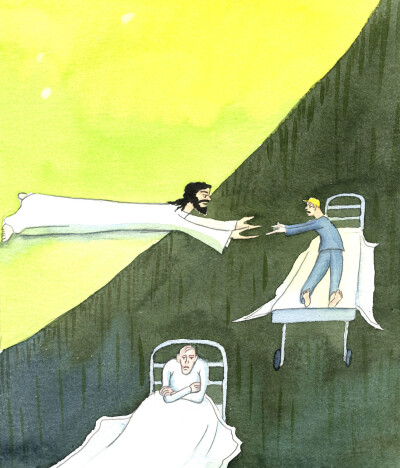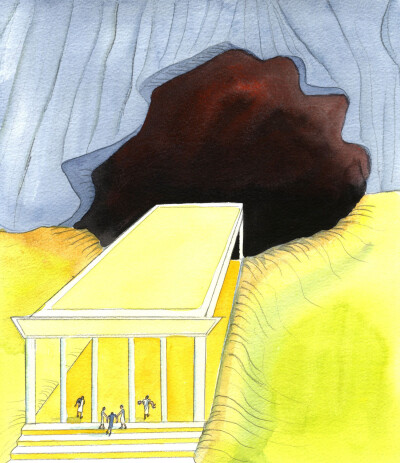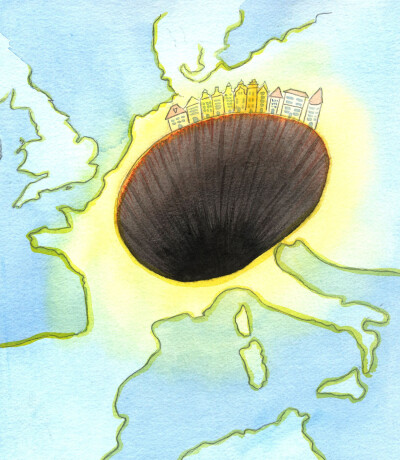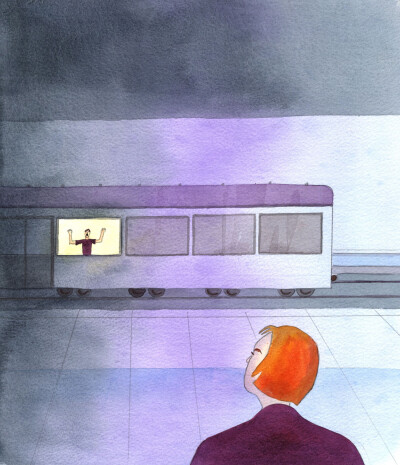Search Page
Showing 1 - 19 of 19
Those who turn to the Lord in their sufferings receive graces and blessings, and even new hope, unlike those who neither ask for His help nor thank Him for what is good - some of whom fall into despair.
Christ already 'sees' the beginning and end of every life - long or short - for all time. We have no right to end our lives by our own action.
Even in the coldest, bleakest surroundings, no-one on earth, not even the poorest peasant in the most dingy hovel (Christ explained) has the right to end his own life or to ask someone to do it for him. If we accepted the power of God into our lives, the love given through Christ, we would look after one another.
People who repent of their sins show their contrition in different ways. Real repentance causes souls to turn to God as did St. Ignatius Loyola and others. But Judas rushed away to kill himself, despite his sorrow. Hence the need to pray for one another.
People usurp the Father's role when they act against His wishes (even without realising it) by their suicide or self-harm. Life is a gift from God, not to be thrown away or damaged.
It is against the Will of God for people deliberately to kill sick persons, or to assist them in committing suicide. Only God can give life. Only God has the right to call someone from earthly life into eternity.
Many priests fail to mention the Cross. Jesus died on it, because of our sins. Few warnings are given from the pulpit, by many priests, about the serious sin by which people condemn themselves to Hell if they do not repent before they die. Many are lost because they have failed to repent of their adulteries, suicides, abortions, and lack of faith in God.
Judas lacked trust in God and in God's power and willingness to forgive; and so, instead of repenting and seeking mercy, Judas regretted his sin but allowed himself to run away, in shame, remorse, and despair - by which he cut himself off from Divine graces.
In societies where abortion is allowed in grave circumstances, it then becomes common-place, then is claimed as a 'right'; and this leads to the gradual approval of further types of killing, such as withdrawal of sustenance from the sick, doctor-assisted suicide, or even calls for the infanticide of children handicapped or sick. It can even lead to pro-life supporters being called religious fanatics.
It is easy to forget God's gifts, and to remember only our difficulties. Everyone on earth has suffering to bear, some much more than others. Yet we can freely choose whether to cope bravely with it, by God's grace, or to give in to self-pity. Some of those faithful people whose love for Christ was sincere but weak, and who were full of self-pity, or who even committed suicide, now languish in Purgatory, seeing at last how much they have sinned.
God is good, and just; therefore everyone who dies receives a just judgement; and even people who commit suicide are judged by Him. He understands the pain and sorrow that cause some people almost to lose hope of finding joy; but it is wrong for anyone to reject the gift of life and to kill himself, or to ask other people to take his life because he is very sick or disabled.
No-one ought to suppose that a person who kills himself is wise. In every life, there is some suffering. The way in which we respond to it reveals our character. Whether sick or well, rich or poor, we have free will. We can respond with recognition of what is good in our lives, even in difficulties, or we can give in to self-pity and resentment. All people - including suicides - are judged by God, at death: by God Who is both merciful and just, but who gave life as a gift, not to be carelessly thrown away. Suicide is a sin.
Only God knows exactly what is in the mind of a person who chooses to kill himself and so disobey God's law; but it is certain that once having passed through the gateway of death, a person can never exclaim, with any hope, "Oh no! I've changed my mind. I want to live! There are things I want to do". He will, instead, meet God, and Judgement.
The dangerous step of a suicide: Everyone who plans to commit suicide deserves to be reminded that death is like a prison with no exit. The entrance to it cannot be opened again, for a person who says: "I've changed my mind! I want to live! There I things I want to do". To commit suicide is to go towards judgement, before God has chosen to call that person, though only God knows how blame-worthy is someone who commits the sin of self-killing.
Only God knows exactly what is in the mind of a person who chooses to kill himself and so disobey God's law; but it is certain that once having passed through the gateway of death, a person can never exclaim, with any hope, "Oh no! I've changed my mind. I want to live! There are things I want to do". He will, instead, meet God, and Judgement.
We are mistaken if we think that ours is a civilised age. There was a temple dedicated to pagan gods, near Christ's home town. Living creatures - even human beings - were thrown to their deaths, at the back of it, to persuade the gods to grant some favour. In our days, slaughter continues, though mostly hidden away. For the good fortune or convenience of many today, lives are sacrificed through abortion, or people are quietly killed if deemed sick, elderly and useless, or the chronic sick are helped to commit suicide.
Europe is endangered by the immoral laws enacted there. Those who campaign for, or enact, or support immoral laws are as if digging a pit for the citizens of their countries. How can countries thrive, or set a good example, if they kill millions of their own number by abortion, and by legalising suicide, and by the killing of the sick and elderly by doctors, who are trained to heal?
The truth about suicide is that there are grave consequences wherever a person decides to kill himself, and succeeds. Whatever the reason for the act, or the degree of culpability of that person, there is no way back. Suicide is like stepping onto an underground train to travel into darkness, then finding the doors are locked, and there is no way out.
A Picture of a Faithful Diocese
A short piece of writing by Elizabeth Wang about how the Catholic faith can be lived and celebrated within a Faithful Diocese, and the responsibilities of all the faithful - and especially bishops - t…
Showing 1 - 19 of 19

